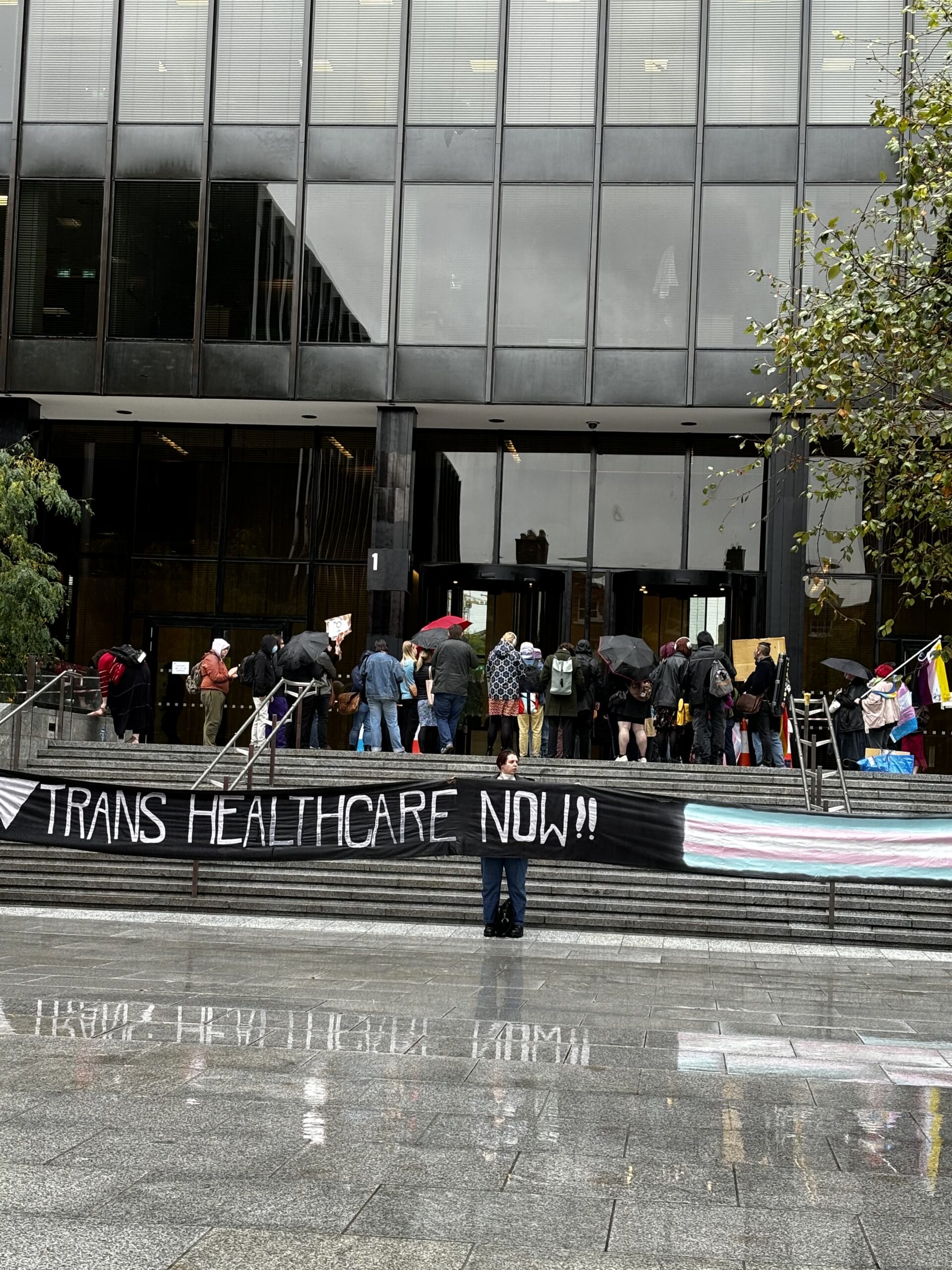Trinity College Dublin Students Union (TCDSU) announced a new collaboration with trans mutual-aid group Trans Harm Reduction to provide free and safe injecting supplies for transgender students on DIY hormone replacement therapy (HRT) on November 29th via Instagram.
HRT is a hormonal medication that is used by transgender and gender non-conforming individuals to align appearance more closely with one’s gender identity.
As part of the initiative, the Welfare and Equality office will be supplying students who reach out with alcohol wipes, syringes, as well as drawing and injecting needles. Students will be able to request the supplies by sending an email to [email protected].
In a statement for The University Times, TCDSU Welfare Officer Hamza Bana, said: “[safe injecting materials] are in very high demand”.
While a definite time frame for the initiative has yet to be established, he went on to express hope and “to be able to provide this service as long as there is a demand for it”.
Fiadh Tubridy, an organizer for Trans Harm Reduction, spoke of the principles underlying the project: “Having access to safe injection supplies is one of a series of basic harm reduction measures that can be taken to safeguard people’s health”. Trans Harm Reduction is in the process of organizing similar initiatives within other educational bodies including IADT, UCD, and Maynooth University.
Trans Harm Reduction is a volunteer-run, grassroots harm reduction organisation that provides help for trans people in Ireland and Scotland. Besides providing free injection supplies, the organisation also publishes laboratory results of commonly used HRT sources and curates a list of GPs willing to do blood work for self-medicating patients.
Transgender self-medication has previously been a contentious issue in Trinity. In September The University Times reported a public dispute between TCDSU President Jenny Maguire and the College Health Service over the provision of blood tests for trans and gender non-conforming students who self-administer HRT to monitor their hormone levels – a service currently not provided by College Health.
This echoes a broader national debate. A 2022 report by Transgender Europe ranked Ireland last in Europe for transgender healthcare. Care for gender dysphoria in Ireland has been centralised by the National Gender Service (NGS), which faces criticism for long waiting times (some estimate it to be over ten years) and extensive psychological screenings, which the NGS defends as a necessary part of the evaluation.
GPs in the country are also discouraged by the service to provide blood work or prescribe hormonal treatments for self-medicating patients who have not been evaluated by the service.
Yet Trans Harm Reduction argues this approach actively hurts the population. “People are self-medicating, it’s a reality […]. What we can do is make it as safe as possible” says Fiadh, lamenting the lack of governmental support for such initiatives.
She also paints a picture of a system in shambles: “We have seen the [transgender] healthcare system get worse over the past few years due to decisions made by the Irish government. […] The current situation is really quite abysmal”. Welfare Officer Hamza Bana corroborates this view, claiming “[long waitlists] force many trans people into having to DIY their Hormone Replacement Therapy”.
With many transgender activists arguing for an overhaul of the system, the HSE is drafting a new model of care for transgender healthcare. While it is supposed to be finished within the next two years, it is unclear what changes this new system may bring.
The works are headed by the clinical lead of the NGS Dr Karl Neff, who has previously supported psychological evaluations, and recommended that GPs do not provide hormonal blood tests for self-medicating patients. Fiadh, speaking in a personal capacity, does not expect fundamental change, positing “it will be a reflection of the existing NGS system”.







